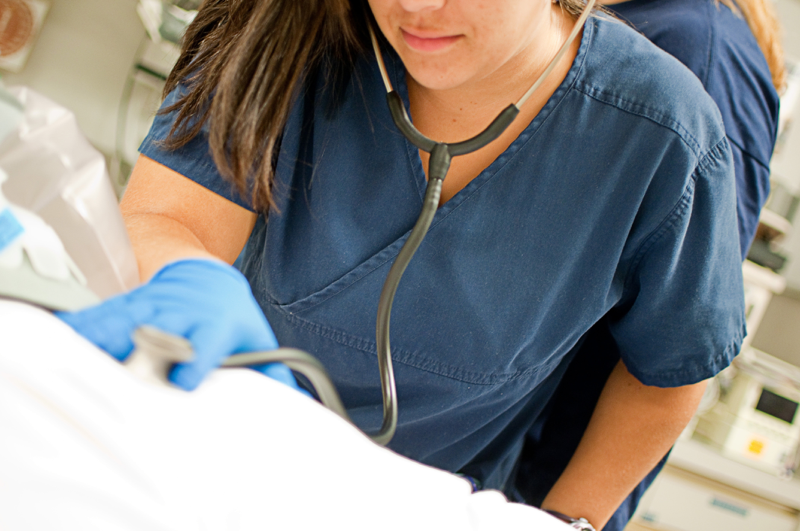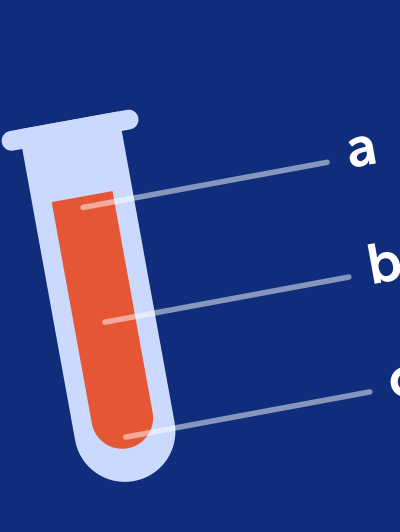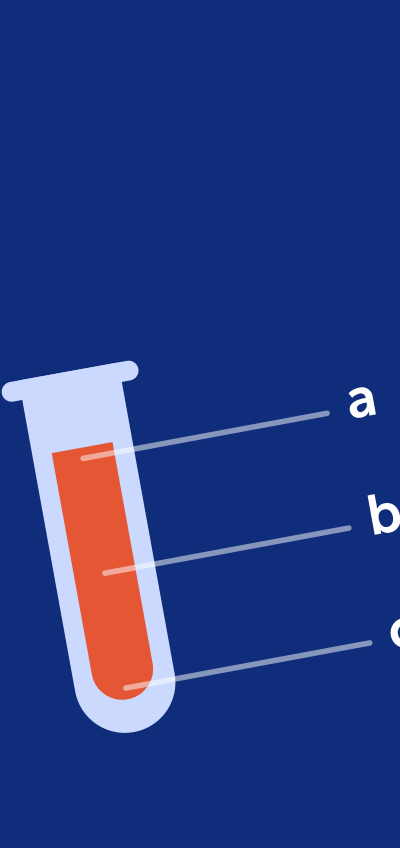
The Daily NCLEX® Challenge is the easiest way to ace your NCLEX exam the first time! Join today, and access 7 days of Premium for free.
Sign up now to receive your first challenge →
You know it’s important to prepare for the NCLEX by studying well ahead of the big exam. When you do this, you need to cover all areas of nursing practice for well-rounded exam prep. Have you been incorporating GI NCLEX questions into your studying routine? If you haven’t, you definitely should be.
The GI system is involved in many disease processes and its proper functioning is a cornerstone of good health. That’s why we made this guide to help you prepare for GI NCLEX questions with an overview of the digestive system and what you need to know for the NCLEX. Finally, we’ll wrap things up with some GI practice questions to really give you an idea of what to expect on exam day.
Let’s begin with a brief overview of the parts of the digestive system and their functions. Remember that your digestive tract begins in the mouth and ends at the rectum. A large portion of this tract is essentially a muscular tube composed of four layers designed to help properly digest food. In order to answer GI NCLEX questions correctly, you need this basic understanding nailed down.
The digestive tract encompasses:

There are many types of digestive disorders that someone can have, but here we’re going to focus on common disease processes you can expect to see on GI NCLEX questions.
GERD occurs when the muscle at the bottom of the esophagus isn’t closing as it should, causing stomach content to spill into the esophagus. This leads to heartburn and inflammation in this area.
Diverticulosis is when small pouches protrude from the inside of the large intestine that can be painful and become inflamed. In diverticulitis, these pouches become inflamed and must be treated.
An impacted or blocked appendix causes appendicitis and must be treated immediately.
IBS occurs in the large intestine and is characterized by diarrhea, bloating, cramping, and bowel changes.
Crohn’s disease is a complete inflammation of the digestive tract and can result in complications if not managed. It’s a type of inflammatory bowel disease.
GI ulcers come in many forms. An ulcer occurs when the acids in the stomach or other irritants cause inflammation and damage to the lining of the digestive tract. Common ulcer types include peptic ulcer disease, duodenal ulcers, ulcerative colitis, and gastric ulcers.
GI NCLEX questions will include the types of medications that are often used to treat GI disease processes. Here are a few examples of these medications to help you begin studying:

When answering GI NCLEX questions, it’s important to understand what to do when caring for patients with disorders of the digestive system.
Here’s what you need to know:

Here are some sample GI NCLEX questions with answer rationales to give you an idea of what to expect on the actual exam. Also, remember that practicing an NCLEX question of the day each day helps you stay on top of your exam prep to help you ace the NCLEX.
GI NCLEX Question #1
You’re caring for a patient recovering from a colostomy performed earlier in the day. Which of the following assessment findings would you expect to find when performing care for this patient?
Answer: B — In the initial days following surgery to place a colostomy, the stoma is often red, bruised, and swollen. As time passes, the stoma will turn pink or red in color. Having a colostomy placed isn’t associated with abdominal distention, increased blood pressure, or rebound tenderness below the stoma.
GI NCLEX Question #2
A patient enters the emergency department complaining of severe abdominal pain. He is diagnosed via X-ray with peritonitis related to a ruptured appendix. What symptoms would you expect this patient to exhibit in this scenario?
Answer: A, C, and D — Patients with peritonitis have decreased urine output, not increased. This is due to a hole in the digestive tract and, in this case, the appendix area causing fluid to move into the peritoneal cavity. Peritonitis patients typically have a fever due to the bowel leakage into the peritoneum causing an infection. Thirst is also a symptom as the patient’s fluid volume is being displaced to the peritoneum. And finally, an inability to have a bowel movement or diarrhea may be symptoms of peritonitis, depending on where the rupture occurred. In this scenario, vital signs should be monitored, fluid intake via IV increased, and the patient should be made NPO as he awaits emergency surgery.
GI NCLEX Question #3
You are preparing discharge instructions for your patient who is being discharged after having a colonoscopy to remove a polyp and check for colon cancer. Which of the following would you not include in your instructions?
Answer: B — When a patient undergoes a colonoscopy with polyp removal, they should expect a bowel movement in a couple of days. If 4-5 days pass without a bowel movement, the patient needs to call their doctor immediately. Routine discharge instructions include lying on your left side if you feel bloated, slowly advancing diet per doctor orders, and not returning to work the day of the procedure.
GI NCLEX Question #4
You’re caring for a patient with a diagnosis of cholecystitis. Which of the following laboratory values would you expect to be outside of normal ranges for this patient?
Answer: A — Patients with cholecystitis have elevated liver enzymes. Thyroid panel, clotting factors, and lipid panel are not commonly out of range for patients with cholecystitis.

Now that you know where to focus your studying efforts in regards to GI NCLEX questions, you can begin digging deeper into the topic. While you’re doing that, take a moment to sign up for the Daily NCLEX Challenge. We give you a new NCLEX practice question each day to keep your mind sharp and ready for NCLEX style testing.
Incorporating NCLEX practice questions into your NCLEX exam prep will put you ahead of the game when it comes to the exam. The more you answer these styles of questions the easier time you’ll have taking the real NCLEX.
Relieve your test anxiety by knowing you have a game plan for tackling your exam preparation with all types of NCLEX questions including GI NCLEX questions sent straight to you every day.
If you are still in nursing school, use these strategies and tips on your nursing exams.
Continue reading

There are always a few more things you can squeeze in last minute to boost your chances of passing.
Continue reading
